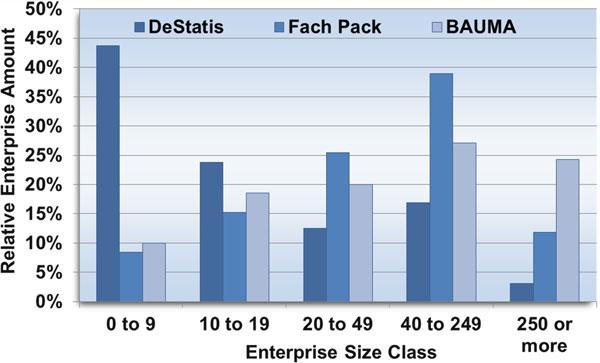
3 minute read
Entrepreneurship and Credit Rationing: How to Screen
from Entrepreneurship, Innovation and Economic Crisis; Lessons for Research, Policy and Practice - 2014
Chapter 1 Entrepreneurship and Innovation in a Context of Crisis
Marta Peris-Ortiz , Vicenta Fuster-Estruch , and Carlos Devece-Carañana
Advertisement
Abstract There is no consensus in the literature on the effects of an economic crisis on entrepreneurial activity. Some authors consider that situations of weak growth, recession, or stagnation may favor discovery of opportunities and innovation; whereas others claim that economic slowdowns have a negative effect on entrepreneurial attitude, reducing discovery of opportunities and investment in innovation. This chapter, by relating entrepreneurs with their experience, specifi c business management skills and knowledge, their innovation practices, attitude, and perception of opportunities, postulates that entrepreneurs with these characteristics and practices, embodying entrepreneurship in the fullest sense, will maintain an entrepreneurial attitude in situations of economic crisis. The study is based on Global Entrepreneurship Monitor data which show a positive, signifi cant relationship between this type of entrepreneur and entrepreneurial performance during the economic crisis.
1.1 Introduction
Based on data from the Global Entrepreneurship Monitor (GEM) 2009, obtained in a context of economic crisis in Spain, this research seeks to establish whether entrepreneurs, that are characterized by the recognition of opportunities and innovation initiatives, maintain an attitude of entrepreneurial orientation in a situation of stagnation or weak growth of the economy. There is no consensus in the literature on the effects of the economic crisis on entrepreneurial activities. For some authors such as Filippetti and Archibugi ( 2010 ) situations of weak growth, recession, or stagnation of GDP may promote discovery
M. Peris-Ortiz (*) • V. Fuster-Estruch • C. Devece-Carañana Departamento de Organización de Empresas, Universitat Politècnica de València Camino de Vera s/n , Valencia 46008 , Spain e-mail: mperis@doe.upv.es; vfuster@doe.upv.es; cdevece@upvnet.upv.es
K. Rüdiger et al. (eds.), Entrepreneurship, Innovation and Economic Crisis: Lessons for Research, Policy and Practice, DOI 10.1007/978-3-319-02384-7_1, © Springer International Publishing Switzerland 2014 1
and innovation opportunities, while for others the economic slowdown adversely affects entrepreneurship, reducing opportunity discovery and innovation investment (Klapper and Love 2011 ). In a broad conception of entrepreneurs (Wennekers et al. 2005 ), it seems clear that the destruction of industry, typical of a slowdown or drop in GPD, implies a decrease in the number of entrepreneurs or in their activity. But this empirical fi nding concerns all the entrepreneurs that form the economic basis of a country, and does not distinguish how the canonical characteristics of entrepreneurs can moderate this general slowdown in entrepreneurial activity. Thus, discovery of opportunities for certain entrepreneurs in an economic crisis is not incompatible with less entrepreneurial activity. It depends on the concept of entrepreneur (and the type of entrepreneur) we are considering. Entrepreneurs with a strong entrepreneurial profi le with specifi c business management knowledge and skills, an ability to detect opportunities, and a willingness to introduce innovation practices are expected to maintain their entrepreneurial attitude and expectations of growth even in an economic crisis. This is the core of this investigation, in which the main objective is to determine whether, in times of crisis, entrepreneurs with a strong entrepreneurial profi le fi nd more diffi culties in starting a business or if they have better or worse expectations of business growth. In other words, this research studies whether entrepreneurs with a clear profi le of entrepreneurship, as noted in the previous paragraph, maintain their entrepreneurial orientation in times of economic crisis. The structure of this work is as follows. The next section provides the theoretical framework and the hypotheses, developing the two basic characteristics of entrepreneurship: intuition, willingness or ability to discover opportunities, and capacity to create those opportunities. We then discuss the empirical methodology employed, present the empirical study, and fi nally we discuss the results, highlighting the contributions, limitations, and future research of the work.
1.2 Theoretical Framework and Hypotheses
Some of the literature on entrepreneurship has identifi ed the individual or social characteristics that characterize the entrepreneur, including desire for personal fulfi llment, need for power and wealth, desire for independence and autonomy, and improvement of the cultural and social status of the family. But the most important individual characteristics that place entrepreneurial behavior within the entrepreneurship function are related to the entrepreneur’s natural tendency to be open to the environment and external challenges, willingness to take risks, cognitive abilities, and creativity (Baum and Bird 2010 ; Cuervo 2005 ). These characteristics are linked to the ability to discover opportunities, as a fundamental aspect of entrepreneurship. For Shane and Venkataraman ( 2000 ) and Shane ( 2012 ), this is the specifi c research fi eld of entrepreneurship, from which scholars can make contributions to the fi eld of management. In the words of Shane and Venkataraman ( 2000 : 218) what characterizes the economic entrepreneurship is “the study of sources of Opportunities,






